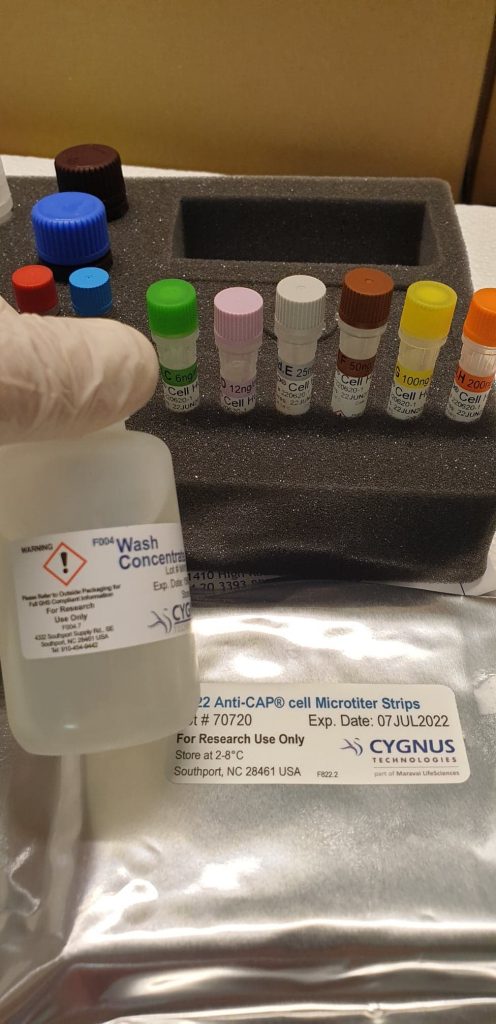Successful Transition from Plasma Exchange to Eculizumab in Acetylcholine Receptor Antibody- and Muscle-Specific Kinase (MuSK) Antibody-Negative Myasthenia Gravis: A Case Report.
BACKGROUND The effectiveness of eculizumab (a terminal complement inhibitor) in acetylcholine receptor (AChR) antibody-negative generalized myasthenia gravis (gMG) is unknown. CASE REPORT A feminine affected person was identified with AChR-antibody and muscle-specific kinase (MuSK) antibody-negative gMG in March 2016.
In January 2017, the affected person was referred for plasma change (PLEX) due to persevering with signs. She was additionally receiving azathioprine, mycophenolate mofetil, and pyridostigmine (all have been continued throughout subsequent therapies). PLEX (5 periods over 10 days) was initially efficient, however over the next month the affected person obtained PLEX weekly, then twice weekly, adopted by 3-times weekly due to worsening signs. In April 2018, PLEX was diminished to twice weekly following initiation of eculizumab (weekly induction dose of 900 mg 1 day after first PLEX, plus 600 mg on the day of the second PLEX session, for four weeks).
The affected person was then stabilized on eculizumab 1200 mg each 2 weeks and the frequency of PLEX remedy was diminished, till PLEX was discontinued at Week 39 after eculizumab initiation. During eculizumab remedy, the affected person’s myasthenia gravis actions of each day dwelling (MG-ADL) rating decreased from 9 to 1 or 2 at most assessments, with a transient enhance to four or 5 between Weeks 19 and 27 following much less frequent eculizumab remedy.
There have been no eculizumab-related adversarial occasions. CONCLUSIONS Following transition from 3-times weekly PLEX to eculizumab in a affected person with treatment-refractory, AChR antibody- and MuSK antibody-negative gMG, there have been clinically vital enhancements in on a regular basis actions affected by MG signs. Further investigation of eculizumab in antibody-negative MG is required.
Reduction of anti-HIV antibody responses in subjects receiving antiretroviral therapy during chronic HIV-1 infection.
Antiretroviral remedy (ART) can result in a decline or absence of anti-HIV antibodies in HIV-infected kids or acutely HIV-infected (AHI) topics. However, the traits of anti-HIV antibody response within the topics who’re handled throughout continual HIV-1 an infection (CHI) haven’t but been totally investigated.Different anti-HIV antibodies have been longitudinally quantified and analyzed in 81 CHI adults beneath ART. The elements related to antibody decline have been evaluated by binary logistic regression evaluation.
ART led to 36.0% (27/75) and 52.1% (38/73) of the sufferers whose anti-HIV ranges diminished by greater than 75% of the baseline ranges at 12 and 24 months post-ART, respectively. The discount of anti-HIV antibodies correlated with the decline of HIV-1 viral load with correlation coefficients within the vary 0.556-0.848 or R2 worth of 0.576-0.873 (P < 0.001). However, no adverse detection of anti-HIV antibody was noticed at 24 months post-ART.
The time from HIV-1 analysis to ART initiation and the baseline anti-HIV ranges have been the important thing elements related to fast decline of anti-HIV antibodies throughout ART.ART-induced kinetics of anti-HIV antibody response was completely different among the many topics with AHI and CHI. Misdiagnosis of HIV-1 an infection will not be a severe subject in HIV-1 chronically contaminated topics beneath ART, and will ideally be averted by utilizing a number of HIV-1 antigens for screening functions.

| M | T | W | T | F | S | S |
|---|---|---|---|---|---|---|
| 1 | 2 | 3 | 4 | 5 | 6 | 7 |
| 8 | 9 | 10 | 11 | 12 | 13 | 14 |
| 15 | 16 | 17 | 18 | 19 | 20 | 21 |
| 22 | 23 | 24 | 25 | 26 | 27 | 28 |
| 29 | 30 | |||||

Categories
- Bird
- Blog
- Conjugation of Synthetic Trisaccharide of Staphylococcus aureus Type 8 Capsular Polysaccharide Elicits Antibodies Recognizing Intact Bacterium.
- Model of vaccine efficacy against HSV-2 superinfection of HSV-1 seropositive mice demonstrates protection by antibodies mediating cellular cytotoxicity.
- My Blog
- PCR
- peptide
- Percp
- Perivascular Lymphocyte Clusters Induced by Gastric Subserous Layer Vaccination Mediate Optimal Immunity against Helicobacter through Facilitating Immune Cell Infiltration and Local Antibody Response.
- peroxidase
- phosphor
- PicoProbe
- Standard
- step
- sterile
- strip
- Target
- TEMED

